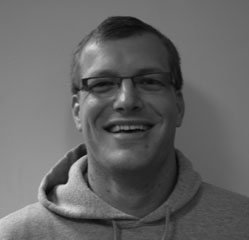
Brandon Minster
A character on the show “30 Rock” once pitched a business plan with a series of corporate buzzwords like: “Wind power, bandwidth and Chinese market.”
When the jargon is on target, it doesn’t matter if you’re actually saying anything.
Witness the euphoria the Earth-conscious consumers receive from electric cars, despite the fact that the Department of Energy says 45 percent of American electricity comes from coal.
That coal-powered car doesn‘t make you feel so self-righteous anymore, does it environmentalists?
Education is subject to the same buzzword sensationalism.
The more hands-on, peer-focused e-learning is going on, the less actual education is needed.
For the past seven years, Pascack Valley Regional High School District in northern New Jersey has issued laptop computers to every student in both of the district’s schools.
The district’s 1:1 Laptop eLearning Initiative is not so much a response to an educational need as it is an advancement in educational buzzwords.
Summations of the program point to non-quantifiable results, such as students “becoming collaborators” or “directing their own learning.”
The need for a control group to judge the program’s validity is acknowledged, but no control group was created. Standardized test performance is strikingly absent, but this may be the result of Pascack Valley already being among the state’s performance leaders.
Also in New Jersey, just 30 miles away from Pascack Valley, education is quite different for students in Newark’s public schools.
There, administrators must cut $75 million from the budget.
No one talks of giving out laptops or collaboration.
The percentage of Newark students receiving proficiency results from standardized exams is 20 to 30 points lower than statewide.
On top of this, many universities report that increasing numbers of incoming students marked “proficient” by their high schools are not prepared for university education.
It is clear that, while Pascack Valley students have the luxury of pursuing educational fads, Newark students are not learning basic skills.
An education innovator who goes beyond buzzwords is Salman Khan, founder of Khan Academy, a not-for-profit online tutorial program.
Khan’s initiative is incredibly data heavy, recording and summarizing results at all levels to increase the program’s effectiveness.
Recently, Khan Academy has become the basis of math education in several classrooms in Los Altos, California.
Students and teachers can both see detailed data-based reports of their progress and their areas for further concentration.
Test scores can be tracked and compared, and because students enter and leave the target classes, the effect of the program on performance can actually be measured.
The work of the Khan Academy is oriented towards quantifiable results, while the Pascack Valley initiative is a technological red herring, celebrating affluence and calling it educational advancement.
A program like the Khan Academy can be coupled with the One Laptop per Child initiative to significantly advance learning in underprivileged areas like Newark, or around the world.
Pascack Valley’s program is only attainable to the wealthy and serves little purpose other than to make their wealth seem useful.
Khan doesn’t resort to educational buzzwords. He doesn’t need to.
The old words are enough to categorize the real gains his work creates.






Comments